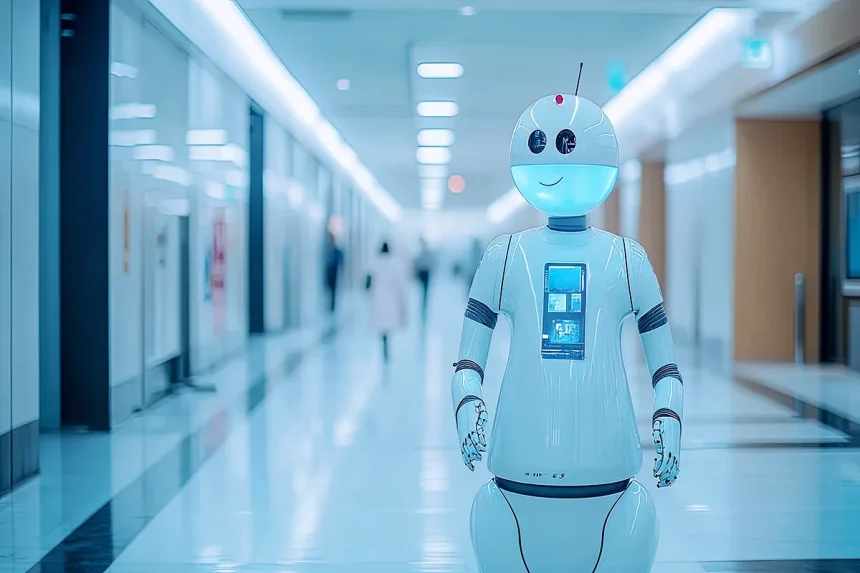We’re standing on the brink of a demographic revolution that will reshape our world in ways we’ve barely begun to comprehend. The global population is aging at an unprecedented rate, and this shift isn’t just a footnote in history books – it’s a seismic force that’s already sending shockwaves through economies, healthcare systems, and societal structures worldwide.
From Tokyo to Berlin, from São Paulo to New York, nations are grappling with a future where gray hair is the new norm. This isn’t just about more retirees or increased healthcare costs. It’s about fundamentally reimagining how our societies function, from the ground up.
Overview:
- By 2050, the global population aged 65 and older will skyrocket to 1.5 billion, more than doubling from 703 million in 2019.
- The care economy is set to explode, with the U.S. long-term care industry alone projected to grow from $443 billion in 2020 to a staggering $737 billion by 2030.
- Approximately 80% of older adults have at least one chronic condition, with 77% battling two or more, presenting unprecedented challenges to healthcare systems worldwide.
- Technological innovations, from AI-powered health prediction to robotic assistants, are poised to revolutionize care for aging populations.
- Ethical dilemmas surrounding extended lifespans, resource allocation, and equitable access to care are sparking heated debates globally.
The Longevity Revolution: A Global Phenomenon
The world is graying, and it’s happening faster than you might think. We’re not just talking about a few more seniors in your neighborhood – we’re facing a global demographic upheaval that’s set to redefine societies across the planet.
The global population aged 65 and older is projected to reach 1.5 billion by 2050, up from 703 million in 2019.
Let that sink in for a moment. In just three decades, we’ll see more than double the number of seniors worldwide. This isn’t a gradual shift – it’s a demographic tidal wave that’s about to crash over us.
Japan, often seen as the canary in the coal mine for aging societies, is already grappling with a super-aged population. But make no mistake – this isn’t just a Japanese problem. Germany, Italy, and even rapidly developing nations like China and Brazil are racing towards similar demographic destinies.
The implications? They’re vast and varied. We’re looking at shrinking workforces, increased healthcare demands, and the need for entirely new social structures to support our aging populations. The future belongs to the old, and it’s high time we started preparing for it.

What percentage of your country’s population will be over 65 by 2050?
Economic Ripple Effects of an Aging World
If you think the longevity revolution is just a social issue, think again. The economic implications of our aging world are nothing short of staggering.
Let’s talk numbers. In the United States alone, the long-term care industry is expected to balloon from $443 billion in 2020 to $737 billion by 2030. That’s not just growth – that’s an economic revolution in the making.
But here’s where it gets really interesting: this demographic shift isn’t just a challenge, it’s an opportunity. The care economy is emerging as a powerhouse sector, ripe for innovation and investment. From healthcare tech to specialized services for seniors, we’re looking at the birth of entirely new industries.
However, it’s not all rosy. An aging population means a shrinking workforce, which could put a serious dampener on economic growth. Nations will need to get creative – and fast – to maintain productivity in the face of demographic headwinds.
Pension systems, designed for a world where retirement lasted a decade or two, are creaking under the strain of supporting retirees for 30 years or more. It’s a mathematical impossibility that’s forcing countries to rethink their entire approach to retirement and social security.
The bottom line? Our aging world isn’t just changing the color of our hair – it’s rewriting the rules of our entire economic system.

Technological Solutions for an Older Population
In the face of this demographic revolution, technology is emerging as our ace in the hole. We’re not just talking about better hearing aids or more comfortable walkers – we’re on the cusp of a technological renaissance in elder care.
Artificial Intelligence is leading the charge. Imagine AI algorithms that can predict age-related diseases before they manifest, allowing for early intervention and prevention. It’s not science fiction – it’s happening right now.
AI algorithms can identify early biomarkers of aging and suggest personalized interventions.
Telemedicine, once a fringe concept, is now mainstream. It’s breaking down geographical barriers and bringing specialized care to the fingertips of seniors, whether they’re in bustling cities or remote rural areas.
But let’s take it a step further. Picture robotic assistants helping with daily tasks, smart homes that adapt to the changing needs of their aging inhabitants, and wearable devices that monitor health in real-time and alert caregivers to potential issues.
These aren’t just cool gadgets – they’re lifelines that could allow millions of seniors to maintain their independence and quality of life well into their twilight years.
The tech sector is waking up to the massive potential of the silver market. Those who can innovate to meet the needs of our aging population stand to reap significant rewards. It’s not just about profits – it’s about leveraging technology to solve one of the most pressing challenges of our time.
Explore our interactive timeline of technological innovations in elder care. From the first hearing aids to AI-powered health prediction, see how far we’ve come and where we’re headed.
Policy Shifts: Adapting to the Gray Dawn
As our world ages, the policies that have governed our societies for decades are starting to show their wrinkles. It’s time for a major policy facelift, and governments worldwide are scrambling to keep up.
Retirement age? It’s becoming as outdated as a flip phone. Countries are realizing that with increased longevity, the concept of a fixed retirement age is unsustainable. We’re seeing a shift towards more flexible retirement policies, encouraging – or in some cases, necessitating – longer working lives.
Healthcare systems, designed for a younger population, are being forced to evolve. The focus is shifting from acute care to managing chronic conditions and promoting healthy aging. It’s a seismic shift that requires not just more resources, but a complete rethinking of how we approach health and wellness.
Immigration policies are also under the microscope. Countries with rapidly aging populations are reconsidering their stance on immigration as a potential solution to workforce shortages. It’s a contentious issue, but one that can’t be ignored in the face of demographic realities.
But perhaps the most exciting policy trend is the move towards creating “age-friendly” communities. From urban planning that considers the needs of older adults to programs that promote intergenerational interaction, we’re seeing a holistic approach to supporting aging populations.
The message is clear: adapt or struggle. The nations that can craft innovative, forward-thinking policies to support their aging populations will be the ones that thrive in the coming decades.

The Ethical Quandary of Longevity
As we push the boundaries of longevity, we’re venturing into uncharted ethical territory. The ability to extend human lifespans is no longer a distant dream – it’s a rapidly approaching reality. But with this power comes a host of ethical dilemmas that we’re only beginning to grapple with.
First and foremost is the question of equity. As new life-extending technologies emerge, who gets access? Are we creating a world where only the wealthy can afford to live into their second century, while the rest of us watch from the sidelines? The potential for a two-tiered society based on lifespan is a chilling prospect that demands our attention.
Then there’s the environmental angle. More people living longer means more resource consumption over extended periods. In a world already grappling with climate change and resource scarcity, can we justify extending individual lifespans at the potential cost of planetary health?
Privacy is another hot-button issue. The AI and digital health technologies that promise to revolutionize elder care also raise serious questions about data security and personal privacy. How much of our personal health information are we willing to sacrifice in the name of longevity?
And let’s not forget the existential questions. As we push the boundaries of human lifespan, are we fundamentally altering what it means to be human? Are we prepared for the psychological and societal implications of living well past a century?
These aren’t just philosophical musings – they’re pressing questions that will shape the future of our species. As we march towards a longer-lived future, we need to ensure that our ethical frameworks keep pace with our technological advancements.
Redefining Productivity in an Aging Society
It’s time to challenge our outdated notions of productivity. In a world where people are living and working longer, the traditional metrics of economic output are starting to look as antiquated as a sundial in the digital age.
The idea that productivity peaks in our youth and declines with age? It’s a myth that needs busting. Older workers bring a wealth of experience, wisdom, and soft skills that can be invaluable in the right roles. We need to start seeing our aging population not as a burden, but as an untapped resource of human capital.
But leveraging this resource requires a shift in mindset. We need to move away from the rigid career structures of the past and embrace more flexible work arrangements. Part-time work, consultancy roles, mentorship programs – these could be the new norm in an aging society.
Education, too, needs a rethink. The concept of lifelong learning isn’t just a catchy phrase – it’s an economic imperative. We need to create educational systems that support skill development and career transitions at all ages.
And let’s not forget the unpaid work that often falls to older adults. Caregiving, volunteering, community leadership – these activities may not show up in GDP figures, but they’re crucial for the functioning of our societies. It’s time we found ways to recognize and value these contributions.
The bottom line? An aging society doesn’t have to mean a less productive one. But it does mean we need to radically rethink what productivity looks like in the 21st century and beyond.

Your move, world. The longevity revolution is coming, whether we’re ready or not. It’s time to stop seeing population aging as a looming crisis and start viewing it as an opportunity to create more inclusive, innovative, and resilient societies.
For policymakers, the message is clear: bold, forward-thinking policies are needed now. From reimagining retirement to investing in age-friendly infrastructure, the time for half-measures is over.
For businesses, the aging population represents a massive market opportunity. Those who can innovate to meet the needs of older adults stand to reap significant rewards.
For individuals, it’s time to rethink our approach to aging. Embrace lifelong learning, stay engaged in your communities, and advocate for the changes you want to see in how society treats its older members.
The demographic revolution is here. How we respond to it will define the future of our species. Are you ready to be part of the solution?
















